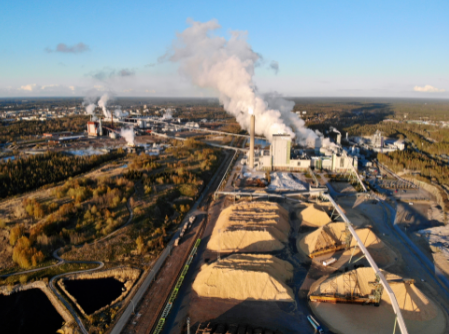
In 2024, Brazil exported nearly 20 million metric
tons (MT) of pulp, marking a 3% increase in volume compared to
2023 and a 34% rise in export value.
These numbers are expected to grow as planned pulp mill
investments come to fruition. Some of these include:
-
In December 2024,
Suzano S.A. inaugurated the world’s largest single-line pulp
mill in Ribas do Rio Pardo, Mato Grosso do Sul, which has an
annual production capacity of 2.55 million MT.
-
Chile’s Arauco is
building a US$4.6 billion bleached eucalyptus market pulp
mill that will be the world’s largest pulp mill project with
3.5 million MT/year capacity when it starts up in 2027.
-
Dissolving pulp
producer Bracell has earmarked US$4 billion to build a 2.8
million MT/year pulp mill in Įgua Clara.
Challenges and Opportunities in Brazil's Pulp
Market
Competition for land in Brazil and investments in pulp
production capacity have been key factors in rising log prices
for the past two decades. However, Brazil’s pulp producers have
the advantage of a huge and expanding planted forest resource to
provide wood fiber. The country’s planted tree area has expanded
to reach 10.2 million hectares, while protecting and expanding
the wood fiber resources plays an important role in pulp
producers’ investment decisions. Suzano’s R$22.2 billion Cerrado
Project investment includes R$6.3 billion for timber plantations
and logistics, while Klabin announced plans at the end of 2023
to purchase Arauco’s forestry assets in Paranį for US$1.16
billion.
Brazil is the largest supplier of hardwood pulp to the US, and
its pulp industry is waiting to see how it might be affected by
the current US enthusiasm for tariffs. There has been some
speculation that any increase in prices of Northern Bleached
Softwood Kraft Pulp (NBSK) as tariffs hit Europe and Canada
could push US tissue producers to switch to hardwood pulp,
increasing business for Latin American producers.
Source:
resourcewise.com

